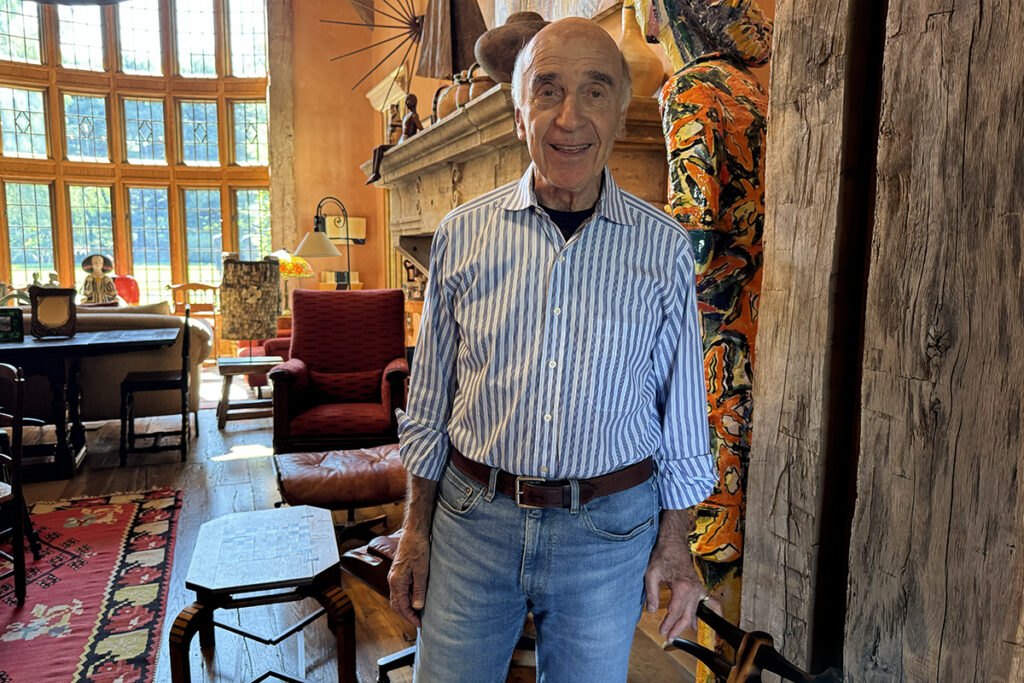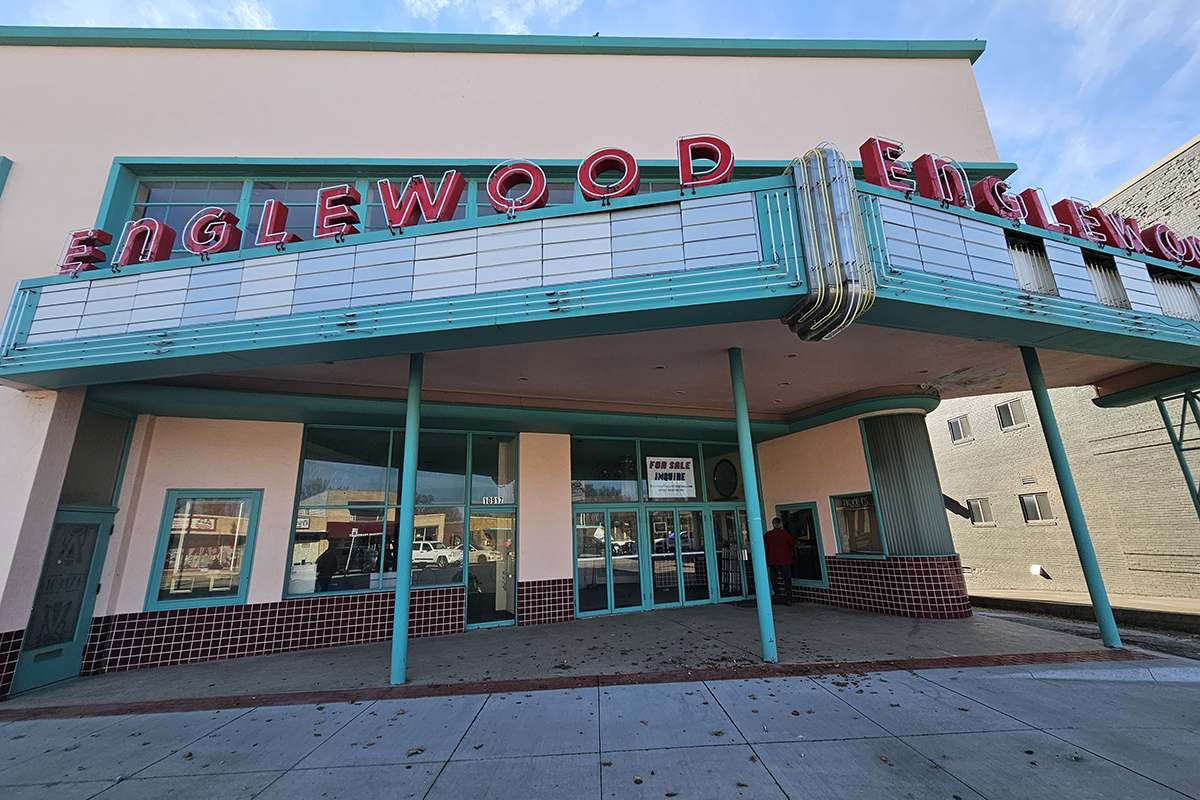These prominent golden-agers talk about lifelong achievements, what they learned through the years, what they are planning on next and how living longer is a rewarding daily adventure.
Written by David Hodes
Interviewed by David M. Block, David Hodes and Pete Mundo
Paul Copaken
Birth date: August 26, 1937, Age: 87

“Start where you are, use what you have, do what you can.”
Anywhere there’s impressive new commercial development in the city, the name of the commercial development firm Copaken Brooks, formerly Copaken, White and Blitt, is visible. In all their work—from signature properties such as Arterra, the first high-rise apartment project in the Crossroads area, and the District at Lenexa City Center, to Nordstrom at Oak Park Mall and the Town Pavilion downtown—the firm showcases stunning new designs suited to practical office, retail business and apartment living.
The Kansas City Star, reporting on the death of Irwin Blitt in October 2017, noted that Blitt helped Copaken, White and Blitt assemble nearly 2,000 acres of property between College Boulevard, 119th Street and Metcalf and Nall avenues. That large parcel of land would later become the site of major commercial development, including the Sprint Campus.
Copaken’s father, Herman, founded the firm in 1922 known then as Copaken Realty. In the early 50s, Copaken, fresh out of college, became co-founder of Copaken White and Blitt. He was chairman of the committee that produced a multi-year downtown strategic plan that resulted in $8 billion of development in Kansas City.
The Fabric of the City
The firm’s developments truly have been part of the fabric of the city for over 100 years.
The original company was composed of three people—brothers-in-law Copaken, Lewis White and Irwin Blitt. “We were all totally opposite: the one with a gut instinct (Blitt), one who had relationships which were the same relationships he had from the age of 10 years old until he died, and me, a numbers guy,” Copaken says. “They could tell me what to do, and I could go out and figure out how to do it. I had to work everything out. It would take me six hours to come to the same conclusion as my brother-in-law, which his gut instinct could do in six minutes. He was a good partner to have. He definitely had a sort of sixth sense about the retail business.”
Personal Development

Copaken retired in 2012, and today, he concentrates on spending time with his family and working on his personal development.
On any day of the week, you might find Copaken chugging up the hills around his home in Mission Hills on his 10-speed bike. It’s not a relaxing outing. It’s serious ongoing maintenance. He’s been riding a bike nearly every other day since he was five years old, and even in his 80s, he challenges himself when he rides. “I don’t think there is a secret to a long and healthy life,” he says. “Do lots of exercise, stay in shape, eat well, and go to work every day.”
Copaken says that his life has always been very structured. “I always was involved in sports,” he says. “I was a coach of Little League for something like 30 years in various sports. I always came home and coached football or whatever it was, and we always ate dinner together as a family. I didn’t really need to set up a work/life balance goal.”
Business challenges came and went for him and the firm during his career. He recalls two during his time at the firm—one a success and one a failure. That failure came from the only zoning battle he lost, which was for a development deal he was working on in Westport, Connecticut. “It was to build an enclosed mall shopping center in Westport in 1972,” he says. “We had a hearing that started at 8 pm and was finally over at 4 am. That was when the local hardware store dealer said, and I quote, ‘If you approve this mall, I will have to stay open on Sundays.’ That was enough to sway the winning vote against us.”
The successful challenge was developing the Rockaway Townsquare in Rockaway, New Jersey, which opened in September 1977, a time of increased interest in environmental issues. No one wanted to upset any of the habitats of local wildlife with the development, Copaken says. “That was a several-years challenge, which we won.”
Moving Parts
Copaken says there are a lot of moving parts in the commercial development business. “Our normal project would take five to seven years to build,” he says. “Over five to seven years, you can make a lot of mistakes. The whole market can change. The whole industry can change.”
Family has been key to the firm’s success. “For most family businesses, I think the numbers are 60 percent that don’t make it to the second generation and 90 percent don’t make it to the third generation,” he says. “We’ve made it to the third and maybe the fourth generation coming up. The fourth is in training.”
Copaken told all three of his sons to go work for somebody else when they got out of college. If they wanted to, they could come back to work at the firm. If they didn’t want to, they didn’t need to. “Jon and Keith came back and are running the business now. And the third, Jamie, is a psychotherapist who chose not to go into business.”
For people just starting up any business, Copaken says that it’s important to have a clear objective of what you want to do, describe it in great detail and have a path of how you’re going to get there. “That usually involves a product,” he says. “So whatever the product is, clearly know what the market is before you start.”
An example in commercial real estate: If you need 500,000 people in your market area to make it a success and you only have 50,000 potential customers, then you’re not going to win. “It sounds so obvious,” he says, “but I would say 90 percent of the people skip that step, thinking they have a product that everybody wants to have.”
The Most Important Thing
What’s the most important thing for a business person? “I would say just be true to yourself,” Copaken says. “It’s about finding out who you are and being satisfied with that person—with the limitations and with the expectations and with the accomplishments. I can’t think of anything more important than that for happiness or success.”
Has his life been a marathon or a sprint? “It’s been a plodder,” he says, chuckling at the thought. “Is a plodder a marathon or a sprint? I think I’ve gone from day to day plodding, from one thing to another, and it’s not either a marathon or a sprint. It’s certainly not a sprint. I’ve never liked sprinting.”
“I don’t think there is a secret to a long and healthy life. Do lots of exercise, stay in shape, eat well, and go to work every day.”
“I would say just be true to yourself.”





